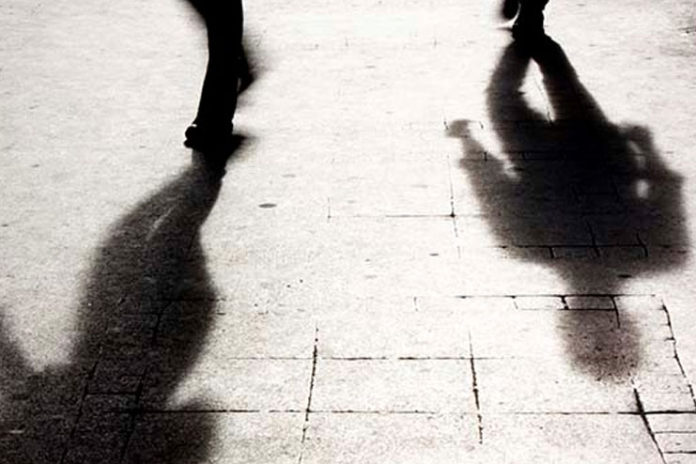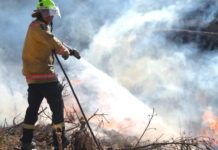Every survivor of the Sexual and Gender-Based Violence (SGBV) who have been forced out of their countries are now at a higher risk and liability because of the coronavirus pandemic and the kind of restrictions that the same has imposed all across the world, said a study.
The researchers further reported that these survivors, mostly of which are women, are experiencing a heightened rate of abuse and exploitation, being in company of potential abusers. Majority of these survivors are currently either homeless as they don’t qualify for public housing or trapped in abusive situations.
Aside from that, the complications of isolation, limited social contact and no access to the services have also posed a very difficult situation for these survivors to get by during these times. The study has been conducted and published by the University of Birmingham.
A West African woman in her 40s, who lives in UK envisioned the scenario stating that the situation is similar to when there is already a lot of problems and to add to that, someone is faced with even bigger problems. The constant trauma and the layers of trouble just keep piling on.
Majority of the survivors of SGBV need consistent treatment for their wounds and injuries. Not just that, many of these individuals who are undocumented have a hard time seeking medical help because of the scare of getting deported. Some others worry that they wouldn’t have the priority for access to the ventilator, in case they are in need of one.
Pip McKnight, head of policy at Refugee Women Connect said that as a charity which works with SGBV people, they have been witnessing a huge increase for the day to day life, especially when it comes to the UK asylum.
McKnight further highlighted that this is already dealing with the part of the population that already struggles with the structural inequalities of the UK asylum system, which has been pretty non-understanding for the destitute and the ones in dire need of the asylum system.
This is what leads these people to rely on the charities to get them by. Be it in terms of food or even in terms of the access to the food banks and the living situation that they need immediate fixing for.
The conducted study by the researchers from the University of Birmingham looked into the life of the survivors from UK, Turkey, Tunisia and Sweden as well as Australia. The same was done by interviewing 52 survivors along with 49 service providers for SGBV. The researchers believe that innumerable people living in these five countries have experienced increased risks.
Jenny Phillimore, professor of migration and super-diversity at the University of Birmingham, who is also the lead author of the study stated saying that the risks that have been replicated in each of these countries is way more than what they have actually studied.
“Unfortunately, forced migration and Sexual and Gender-Based Violence are closely connected, and where you have refugees, you have reports of such violence – see, for example, the Rohingya,” said Phillimore, who is a world refugee expert.
Only a handful of the SGBV now have the economic stability to live off of the savings that they have. But, with the lockdown, majority of the informal jobs have been out, putting their lives at risk at the moment.
Aside from that, with the lockdown and the economic drop, several of the charities have paused their operations because of the increased economic hardships. Not just that, the individuals who are not able to afford a good and safe housing are living in cramped up situations, unable to follow through the protocols of self isolation and social distancing as well.
Phillimore further highlighted the fact saying that the government has been paying attention to some of the forced migrants but nothing to the SGBV survivors which is more or less how they are treated normally.
Terrible things happen to the women in such countries of refuge, so at this point, those are just mere numbers. The Tunisian government has been providing with a three month grant to remain which has made their lives a lot less precarious.
The governments lack a unified approach to treating the coronavirus, so it is not surprising that their approach to saving the survivors is not organised as well.
It is not a new thing that the rights of the forced migrants are the last ones considered, so it is not surprising that the attention posed by the UK government for them is the least at the moment.
There have been excerpts of good moves for the migrants in some of the adjoining countries. Take Ireland for example, the country created a temporary firewall between immigration control and health and policing services, so the same is applicable for when someone is faced with the risks of domestic abuse as well. Spain has also released all the immigration detention, ensuring that they are not criminals.
With such findings, the researchers are consistently urging the governments to ensure basic safety nets are put into place for all the forced migrant population, irrespective of their legal status.
They are also urging for universal healthcare access along with emergency housing facility for the survivors of domestic violence and abuse. The other demands include cash for food and basic hygiene and the access to psycho social counselling to keep their mental health in check.
Phillimore emphasised saying that the need for shelters for women is a must, regardless of their immigration status. Not only these women are isolated, they have undergone immense abuse, shaking their trust on anyone.
Showing little acts of kindness by offering food and some warm clothes and humanity during these times of crisis can help restore people’s faith in humanity.
And, communities are doing their bit to come forward and help the individuals who are in need for the same. But, there is only so much that communities can do. This is the reason why the government needs to wake up before it’s too late.
The simple systematic change is the key that can change and improve the lives of people who have been suffering consistently.













































